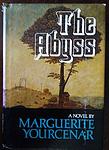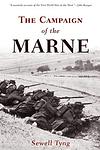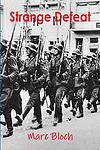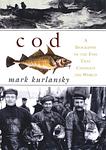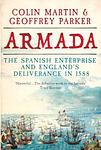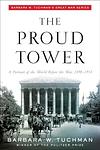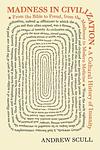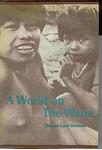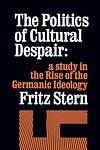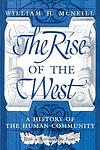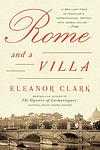The Greatest French, American "European History" Books of All Time
Click to learn how this list is calculated.
This list represents a comprehensive and trusted collection of the greatest books. Developed through a specialized algorithm, it brings together 305 'best of' book lists to form a definitive guide to the world's most acclaimed books. For those interested in how these books are chosen, additional details can be found on the rankings page.
Genres
European History is a category of books that focuses on the historical events, people, and cultures of Europe. It covers a wide range of topics, including the ancient civilizations of Greece and Rome, the Middle Ages, the Renaissance, the Enlightenment, and the modern era. This category of books explores the political, social, economic, and cultural developments that have shaped Europe over the centuries, from the rise and fall of empires to the impact of wars and revolutions. It provides readers with a deeper understanding of the rich and complex history of Europe and its influence on the world.
Countries
Date Range
Reading Statistics
Click the button below to see how many of these books you've read!
Download
If you're interested in downloading this list as a CSV file for use in a spreadsheet application, you can easily do so by clicking the button below. Please note that to ensure a manageable file size and faster download, the CSV will include details for only the first 500 books.
Download-
1. Essays by Michel de Montaigne
This collection of essays explores a wide range of topics such as solitude, cannibals, the power of the imagination, the education of children, and the nature of friendship. The author employs a unique and personal approach to philosophy, using anecdotes and personal reflections to illustrate his points. The essays provide a profound insight into human nature and condition, and are considered a significant contribution to both literature and philosophy.
The 111th Greatest Book of All Time -
2. The Guns of August by Barbara Tuchman
"The Guns of August" is a detailed and engaging account of the first month of World War I. The book explores the events leading up to the war, the political and military strategies of the various countries involved, and the critical decisions that shaped the course of the conflict. It presents a vivid picture of the war's early stages, highlighting the miscalculations, miscommunications, and misunderstandings that led to one of the most devastating wars in history.
The 918th Greatest Book of All Time -
3. The Great War and Modern Memory by Paul Fussell
"The Great War and Modern Memory" is a critical analysis of the impact of World War I on the English society and culture. The author explores the war's influence on literature, language, and symbolism, arguing that the horrific experiences of the war drastically altered public perception and understanding of conflict, honor, and heroism. The book combines literary criticism, history, and social commentary to provide a comprehensive examination of the war's lasting effects on the collective memory of the English-speaking world.
The 1118th Greatest Book of All Time -
4. The Mediterranean And The Mediterranean World In The Age Of Philip Ii by Fernand Braudel
This seminal work offers a comprehensive analysis of the Mediterranean region during the 16th century, focusing on the complex social, political, and economic landscapes that defined the era of Philip II of Spain. The book transcends traditional historiography by emphasizing the geographical and ecological factors that shaped human activity, from the ebb and flow of commerce and the patterns of agrarian life to the rise and fall of empires. Through a meticulous study of the Mediterranean world, the narrative weaves together the intricate tapestry of cultures, religions, and power dynamics that characterized the period, providing a vivid portrayal of the enduring influence of the environment on the course of human history.
The 1124th Greatest Book of All Time -
5. Émile by Jean-Jacques Rousseau
The book in question is a seminal work in the field of education and philosophy, presenting a comprehensive treatise on the nature of man and the importance of education tailored to the individual's developmental stages. The author argues for a system of education that allows for the natural development of a child's abilities and senses, advocating for learning through experience rather than traditional academic instruction. The narrative follows the growth of a fictional boy, illustrating the author's educational philosophy through his upbringing, which emphasizes moral and emotional development alongside intellectual growth. The work challenges conventional notions of education and has had a profound impact on modern educational theory.
The 1358th Greatest Book of All Time -
6. The Rise and Fall of the Third Reich by William L. Shirer
This book provides a comprehensive history of Adolf Hitler's Third Reich, from its inception to its downfall during World War II. The author, an American journalist who reported from Germany and Austria during the Nazi era, uses firsthand accounts, interviews, and Nazi documents to detail Hitler's rise to power, the mechanisms of the Nazi state, and the events leading to and during World War II, including the Holocaust. The book concludes with an analysis of why the Third Reich fell and the aftermath of its collapse.
The 1711th Greatest Book of All Time -
7. To the Finland Station by Edmund Wilson
This book is a historical narrative that explores the evolution of revolutionary thought, from the French Revolution through Karl Marx's theories to the Russian Revolution. It focuses on the lives and ideas of key figures in radical political thought, including Marx, Engels, Lenin, and Trotsky. The book culminates in the pivotal moment when Lenin arrives at the Finland Station in Petrograd in 1917, marking the start of the Bolshevik Revolution.
The 1861st Greatest Book of All Time -
8. Letters On England by Voltaire
The book is a series of essays written in the form of letters that offer a critical examination of various aspects of English society, including its politics, religion, and culture, during the early 18th century. The author, a prominent Enlightenment thinker, contrasts the relative freedom and tolerance he observes in England with the more rigid and hierarchical society of his native country. Through his observations, he praises the English constitutional monarchy, the country's scientific achievements, and its respect for individual liberties, while also reflecting on the nature of trade, the role of the press, and the philosophies of notable English figures. The work is notable for its advocacy of religious tolerance and freedom of thought, and it played a significant role in promoting English ideas to a Continental audience.
The 1895th Greatest Book of All Time -
9. The Abyss by Marguerite Yourcenar
"The Abyss" is a historical novel set in the 16th century that follows the life of Zeno, a physician, philosopher, and scientist. The narrative explores Zeno's journey from his birth in Bruges to his travels across Europe, his experiences during the Inquisition, and his ultimate death in Constantinople. The book delves into the intellectual and spiritual challenges of the Renaissance era, providing a profound exploration of the human condition, the quest for knowledge, and the struggle between faith and reason.
The 2005th Greatest Book of All Time -
10. The Campaign of the Marne by Sewell Tyng
"The Campaign of the Marne" is a detailed account of the crucial battle that took place during the early stages of World War I. The book provides an in-depth analysis of the strategies, tactics, and decisions made by both the Allies and the German forces. It sheds light on the significant impact of the battle, which halted the German advance into France and marked a turning point in the war. The author also explores the larger political and social context of the war, offering a comprehensive understanding of this critical historical event.
The 2670th Greatest Book of All Time -
11. Strange Defeat by Marc Bloch
"Strange Defeat" is a wartime memoir written by a French historian who served as a soldier during World War II. In the book, the author critically analyzes the reasons behind the swift and shocking fall of France to Germany in 1940. The author attributes the defeat to the outdated strategies and poor leadership of the French military and government, and also highlights the social and political issues that plagued France at the time. The book is not only a personal account but also a profound critique of French society and its institutions.
The 2698th Greatest Book of All Time -
12. Cod: A Biography of the Fish that Changed the World by Mark Kurlansky
This book is a fascinating exploration of the historical, cultural, economic, and ecological impact of the codfish. It traces the role of this fish in shaping economies, sparking wars, and influencing culinary trends across centuries and continents. The book also delves into the devastating effects of overfishing and the current struggle to sustain cod populations. The narrative combines history, science, and gastronomy to present a comprehensive biography of this significant fish species.
The 2748th Greatest Book of All Time -
13. Lenin's Tomb: The Last Days of the Soviet Empire by David Remnick
This book provides an in-depth account of the final days of the Soviet Union, focusing on the period from 1989 to 1991. It explores the political, economic, and social factors that led to the collapse of the Soviet empire, including the role of key figures such as Mikhail Gorbachev, Boris Yeltsin, and others. The author, a journalist who lived in Moscow during this time, combines historical analysis with personal observations and interviews, offering a unique perspective on this significant period in world history.
The 2871st Greatest Book of All Time -
14. The Armada by Garrett Mattingly
"The Armada" is a comprehensive historical account of the attempted invasion of England by the Spanish Armada in 1588. This work meticulously chronicles the political and religious turmoil of the era, the strategic planning and execution of the naval campaign by the Spanish, and the defensive maneuvers of the English under the leadership of Queen Elizabeth I. The narrative delves into the personalities of key figures, the technological and tactical aspects of 16th-century naval warfare, and the broader European context, culminating in a detailed examination of the battles and the Armada's eventual disastrous defeat, which had lasting consequences for the balance of power in Europe.
The 3090th Greatest Book of All Time -
15. The Proud Tower by Barbara Tuchman
This historical work delves into the tumultuous period preceding World War I, capturing the social, political, and cultural landscape of the world from the 1890s through the early 20th century. The narrative weaves through various countries and influential figures, examining the contrasts between the wealth of the elite and the struggles of the working class, the rise of anarchism, and the complexities of pre-war diplomacy. It paints a vivid picture of an era marked by both grandeur and the simmering tensions that would eventually lead to one of the most devastating conflicts in human history.
The 3090th Greatest Book of All Time -
16. Madness And Civilization by Michel Foucault
The book is a profound and critical exploration of the history of the treatment of the mentally ill in Western society, tracing the shifting boundaries between madness and sanity from the Middle Ages to the end of the 18th century. The author argues that the way people with mental illness were treated was a reflection of the cultural, social, and intellectual mores of the time. He examines the evolution of institutions such as asylums and the role of medical and philosophical discourse in defining and managing madness, suggesting that the treatment of the mentally ill has often been a way of exerting social control rather than a genuine effort to help those suffering. The work challenges readers to reconsider the relationship between reason, unreason, and the structures of power and knowledge.
The 3275th Greatest Book of All Time -
17. The Peasants Of Languedoc by Emmanuel Le Roy Ladurie
This historical study delves into the social and economic conditions of rural life in the Languedoc region of France from the 15th to the 18th centuries. It examines the impact of climate, the cultivation of vineyards, and the influence of market forces on peasant life, revealing the cyclical nature of prosperity and hardship in agrarian society. The book also explores the effects of demographic changes, including the consequences of the Black Death and other epidemics, on the structure and dynamics of peasant communities. Through meticulous archival research, the work paints a detailed picture of how these farmers adapted to changing times, and how their lives were shaped by both local conditions and broader European trends.
The 3275th Greatest Book of All Time -
18. Combats Pour L'histoire by Lucien Febvre
"Combats Pour L'histoire" is a collection of essays by a prominent historian who was a key figure in developing the Annales School of historical thought. In this work, the author passionately argues for a new approach to studying history, one that moves beyond the traditional focus on political events and great men to include a broader analysis of social and economic factors, mentalities, and the structures that shape human activity over time. The book emphasizes the importance of interdisciplinary research, incorporating insights from geography, sociology, and anthropology to create a more nuanced and dynamic understanding of the past. The author's advocacy for this methodological shift has had a lasting impact on the field of history, encouraging generations of scholars to explore the complex interplay of forces that influence historical change.
The 3275th Greatest Book of All Time -
19. A World On The Wane by Claude Lévi-Strauss
The book is a reflective account of an anthropologist's journey through the Amazon Basin, documenting the lives and customs of indigenous tribes at a time when their traditional ways were increasingly threatened by the encroachment of modern civilization. Through a series of vivid observations and analyses, the author explores the complex social structures, myths, and rituals of these societies, while also contemplating the impact of Western influence on their survival. The narrative serves as both a poignant chronicle of disappearing cultures and a critique of the forces of colonialism and globalization that contribute to the erosion of human diversity and heritage.
The 3275th Greatest Book of All Time -
20. The Politics Of Cultural Despair by Fritz Stern
This book is a critical historical analysis that delves into the intellectual roots of cultural pessimism in Germany leading up to the rise of National Socialism. It examines the works and influence of three prominent conservative critics from the late 19th and early 20th centuries, who lamented the perceived decline of traditional values and the erosion of social cohesion in the face of modernity and liberalism. The author argues that their reactionary critique of contemporary culture and their yearning for a return to an idealized past laid the groundwork for the ideological underpinnings of fascism, demonstrating how cultural despair can be manipulated into political extremism.
The 3275th Greatest Book of All Time -
21. The Rise of the West by William H. McNeill
"The Rise of the West" is a comprehensive historical narrative that explores the development of Western civilization from the early stages of human history to the 20th century. The book provides a detailed analysis of various civilizations around the world, their interactions, and the resulting cultural exchanges that have shaped the modern world. It also discusses the significant factors, such as technological advancements, religious transformations, and political changes, that have contributed to the West's ascendancy.
The 3440th Greatest Book of All Time -
22. The Order of Things by Michel Foucault
"The Order of Things" is a philosophical exploration of the historical changes in the human sciences, including economics, natural history, and philology. The author delves into the concept of 'epistemes' or the unconscious rules that govern the way people perceive the world, and how these have changed over the centuries. The book challenges the idea that knowledge has progressively improved over time, instead suggesting that each era has its own unique framework for understanding and interpreting the world.
The 3636th Greatest Book of All Time -
23. Rome And A Villa by Eleanor Clark
This book is a rich and evocative travel memoir that takes the reader on a journey through the timeless beauty and layered history of Rome and its surroundings. The author, with a keen eye for detail and a deep appreciation for art and architecture, shares her experiences and observations as she explores the Eternal City and resides in an ancient villa. Through her lyrical prose, the narrative delves into the intermingling of past and present, revealing the city's enduring allure and the author's personal reflections on the cultural and historical tapestry that defines Rome.
The 3667th Greatest Book of All Time -
24. Chronicles by Jean Froissart
The book in question is a historical narrative that provides a detailed account of the events, politics, and warfare of the 14th century, particularly focusing on the Hundred Years' War between England and France. The author, a medieval French chronicler, compiled extensive anecdotes, interviews, and reports, offering readers a vivid portrayal of the chivalric age, the lives of nobility, the impact of battles, and the social and political dynamics of the time. His work is considered one of the most important primary sources for the period it covers, offering a blend of factual history and the author's own interpretations and biases, reflecting the complex tapestry of medieval European society.
The 4149th Greatest Book of All Time -
25. Say Nothing by Patrick Radden Keefe
This book is a gripping exploration of the Troubles in Northern Ireland, focusing on the disappearance of Jean McConville, a mother of ten who was abducted by the Irish Republican Army (IRA) in 1972. The narrative weaves together the stories of several key figures in the IRA, including Dolours Price, an IRA member who became disillusioned with the organization, and Brendan Hughes, a former IRA commander. The book delves deep into the political and personal complexities of the conflict, revealing the long-lasting trauma and moral ambiguities that continue to haunt those involved.
The 4553rd Greatest Book of All Time
Reading Statistics
Click the button below to see how many of these books you've read!
Download
If you're interested in downloading this list as a CSV file for use in a spreadsheet application, you can easily do so by clicking the button below. Please note that to ensure a manageable file size and faster download, the CSV will include details for only the first 500 books.
Download







